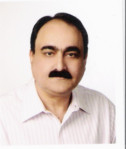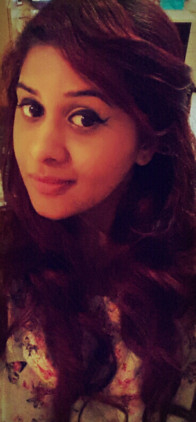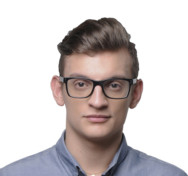
Apps can never become a substitute for medical practitioners because an app can never reach the result that human interaction can. Therefore, apps can never become as effective as traditional therapy. However, it is a great tool to use alongside your treatment in order to increase the effect, but as a standalone treatment, apps would never survive. When a person is suffering from a mental disorder, it is vital to monitor the condition, and I doubt that an app can achieve an accurate result based on an input. In case of mental disorders, it is highly important to monitor the patient and interact with him or her in order to track the progress. In terms of sufferers having more trust in their smart device than in an actual person, it is partly true but then again, if traditional treatment didn’t work we wouldn’t have psychologists and psychiatrists. It comes down to building a sense of trust and medical practitioners are trained to deal with such disorders. With that in mind, I do not think that an app would be more successful due to the fact that the sufferer feels more comfortable sharing his or her condition with a private device. Apps can never achieve the result of a medical professional, however, I definitely think that it can be included in the initial treatment to reach the maximum result. It is also a good way for the sufferer to track his or her progress.
From Mr Mohammad Al Suwaidi
Emirati medical student in Dublin, Ireland
I agree that apps are not a substitute for doctors because each and every individual is different. However, it can work as a temporary substitute when there is a lack of facilities but it can never fully substitute the existence of a doctor. Essentially it comes down to interaction and an app can never achieve that. Having someone that give you advice or just listens to you does more than we can imagine. An app may help in the treatment but it cannot fulfil the demand of every patient nor can it look at the needs of that specific person. I disagree that technology is more effective than traditional therapy because although there has been a lot of advance in terms of technology, there are still some aspects which it cannot deal with. Doctors adjust according to the patients needs, but an app may not be able to achieve this. Apps cannot work as a standalone treatment but it can definitely give the sufferer a wider knowledge about his or her problem and how to deal with it. Something is always better than nothing. It is also a good option for those who may not afford traditional therapy or do not have the time or access to use such services. I agree that sufferers may have more trust in their smart devices than in an actual person because a lot of people don’t feel comfortable sharing their condition due to shyness. In that case, an app may be more effective because the sufferer feels more comfortable sharing information because he or she is not being observed by a person. Apps are no solution but can definitely provide certain help along with proper treatment. I do not think that it will take over traditional treatment but it can help the process of the treatment.
From Dr Naresh Dhar
Indian psychiatrist in Dubai
I agree that apps are not a substitute for doctors because apps are based on generalised parameters and hence, they are effective as a first aid tool. It cannot, however, substitute for a doctor for a couple of reasons. Firstly, as human beings, our bodies are all so unique and therefore a generalised method will have its limitations. For example, people with similar diagnosis or symptoms require individualised assessments based on their severity of illness, mobility, prognosis, extent of caregiver support and the patient’s wishes. Secondly, apps may or may not take into account your medical history and if, they do record the information, apps don’t have any way of analysing what type of medicine will best suit you. For instance, your doctor will always have your medical history compared to an app which would suggest a medicine you may be allergic to. Additionally, many medications can only be bought with prescriptions from doctors. Lastly and most importantly, apps would suit well for psychosomatic issues because of the placebo effect but not for physical issues. Moreover, people who suffer from phobias, panic attacks, anxiety disorders require a one-to-one interaction with a doctor/psychiatrist. This one-to-one interaction plays a vital role in determining the root cause for the treatment of these psychological disorders and the root cause always varies from person to person.
From Ms Anjana Pisharody
Indian psychology graduate in Sharjah
A device does not have the eyes of a trained doctor and therefore, it is dangerous for a patient to diagnose him or herself. Personally, I have had a bad experience with looking up symptoms online, because I always end up diagnosing myself with cancer. I wouldn’t say that technology is more effective, rather it is helping traditional therapy become more effective. You do not keep your secrets on a mobile device. I can see that if you are pregnant or have a small baby, it would be nice and informative to see the progress and maybe get tips along the way. However, a mobile device is not and should not be treated as a medical journal. Besides, if you are downloading the app, you are most likely to share your information with the company who owns it. I wish there was an app to help me overcome my fear of dentists. However, a call to my dentist would help me more than two hours of browsing on an app.
From Ms Gina Dalen
Norwegian journalism graduate based in Gjovik, Norway
Apps cannot analyse a person in a qualitative manner because it is built based on science, algorithms and theory. In order to treat someone with a mental disorder, you need to have a person who can analyse on a deeper level. Apps are based on artificial intelligence and cannot be abstract. However, technology may be more effective in terms of expenses. Sufferers may have more confidence in their smart device than in a person, but that completely depends on your view on technology and whether or not you are convinced that the information you share is going to stay on the phone. A smart device may be a private device, but not necessarily safe and the main threat is hacking. The input is only private until the phone gets hacked, but with a doctor, it is safer. I wouldn’t mind trying these apps out as I am already a frequent user of various apps such as to keep track of my food and workout.
From Mr Robert Singh
Swedish project manager based in Stockholm, Sweden
Facebook comments:
Not at all. Doctors have a gift to think and analyse and by doing that they can give a personalised treatment by taking into consideration various factors that an app cannot.
From Ms Vanessa Ca
UAE
I would never think of using any app as a substitute for doctor. Those apps only show general symptoms for chronic diseases. These symptoms vary depending on age and condition. However, we can get some idea or we can monitor ourselves before we visit to the doctor. We always expect a long discussion about our medical problems with the doctor before prescribing any medicines. Those discussions can be done on an app to mainly save our time. However. before consuming any medicines, we should visit to the doctor in person.
From Ms Archana Sen
Abu Dhabi
The underlying word in the debate between application services and traditional therapy is reliability. How reliable are these applications? As far as overtaking is concerned, in the near future definitely not. There is a much larger population who believe that personal interaction is much more reliable even if it costs more. They believe it is more effective and simply use these apps as guidelines before meeting their doctors. We humans are still too scared to rely on a paragraph we read on a smart phone that ultimately will decide the fate of our lives.
From Mr Govind Mohandas
Dubai
- Compiled by Donia jenabzadeh/Community Web Editor
















